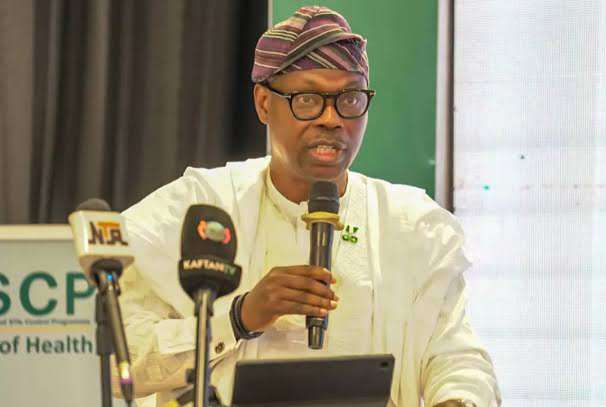Education in Nigeria
Health minister Salako urges united action to ensure equitable access to healthcare

Nigeria’s Minister of State for Health and Social Welfare, Dr Iziak Adekunle Salako, has called for a collective approach to strengthen the country’s health system and guarantee equitable access to healthcare for all citizens.
Speaking at a public health conference held at Babcock University, Ogun State, Dr Salako emphasised the need for innovative strategies to prevent service delivery disruptions in the health sector, noting that such disruptions have far-reaching consequences for families and communities.
Delivering his keynote address titled “Bridging Service Delivery Disruption in Public Health: A Critical Imperative for Our Future,” the minister warned that Nigeria must learn from past crises and prepare for future challenges.
“While we refuse to be defined by these challenges, we must confront the issues at hand and commit to proactive solutions,” he said. “This conference symbolises our collective determination to learn from past lessons, innovate in adversity, and construct a public health system prepared for future crises.”
He identified industrial actions in the health sector, as well as endemic and pandemic outbreaks, as major triggers of disruptions, citing the COVID-19 pandemic as a stark reminder of the vulnerability of healthcare systems.
According to him, infection of healthcare workers, shortage of Personal Protective Equipment (PPE), disruption in the supply chain of essential medicines, and movement restrictions during the pandemic worsened the strain on the system, forcing some Primary Healthcare Centres to shut down.
“The COVID-19 pandemic, despite its devastating impact, also catalysed innovation and reminded us of the urgent need for a more resilient and responsive public health system,” he said.
Among strategies to strengthen health delivery, Dr Salako proposed creating mobile diagnostic units at community levels, setting up specialised disease control centres, and introducing home delivery of medications for patients with chronic conditions.
He also highlighted the Nigerian Health Sector Renewal Investment Initiative, describing it as a sustainability-driven programme to mitigate future disruptions.
“The future of Nigeria’s public health is secure, but it requires a united effort. I call on all to join hands as we journey to save lives, reduce physical and financial pain, and promote health for all Nigerians,” he said.
In his remarks, Babcock University President/Vice Chancellor, Prof Ademola Tayo, commended the minister for his insights and urged participants to implement the lessons from the conference to improve healthcare delivery.


